Why I write
Between furniture making and freelance writing, Nancy Hiller has had an incredibly rich career– and we're not talking about money.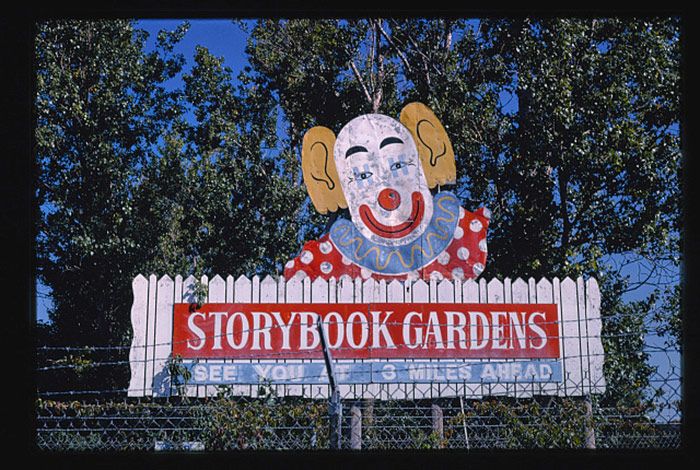
“A cabinetmaker writing and selling books?” wrote one commenter in response to a targeted ad my book publisher, Lost Art Press, runs on Facebook and Instagram. “Does that answer the question: ‘Can you earn enough as a cabinetmaker?’”
I offer the above to professors of Critical Thinking and Reasoning 101 as an example of a logical fallacy.* While it’s not a simple syllogism with easily parsed premises, its implied answer – “Yes, that answers the question; the answer is obviously “no, you can’t earn enough as a cabinetmaker” – is a shining example of flawed reasoning.
Of course this is exactly the kind of skeptical, off-the-cuff remark that has earned Facebook a reputation as a magnet for mudslingers who seem to believe the rest of the world is as cynical as they are. No need to actually read any of the author’s books before lobbing that ball of fetid earth; your first reaction is what counts! Extra points for clever jabs at strangers whose work is completely unfamiliar to you; just yell insults from the sidelines based on your initial impressions and you’re guaranteed to generate “likes.”
This attitude is easier to forgive if we agree that the internet is full of people trying to sell stuff based on unsupportable claims. Apparently our man thinks that’s what Lost Art Press and I are up to. But the intelligent and thoughtful, along with those who have themselves been tarred by this type of frayed-bristle brush, generally do a little research before making fools of themselves in public.
So, (non-)reader, you may think you’ve caught my book publisher and me in a ruse, but you’re mistaken. I write primarily for love, and decades’ worth of fiscal analysis applied to my one-person business has me under no illusions on this score: I would make more money if I never wrote another essay, article, or book and instead focused solely on woodworking.
I’ve written what follows because our commenter is not alone in his suspicion that writing may pay better than woodworking. Every so often someone asks me how they might break into the market and tap this imagined vein of fame and wealth. I hope that what follows will help them and others.
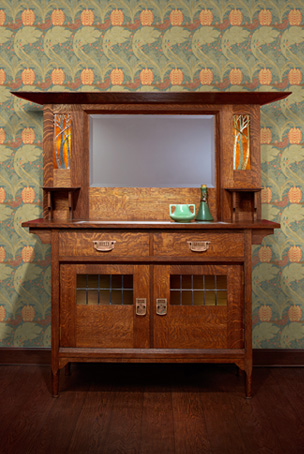
I started making my living as a full-time cabinetmaker in the autumn of 1980. After excelling in languages and writing at high school, I was burned out academically. I started college and loved it but had no idea how it was likely to be relevant to anything I could imagine doing in life. I did what lots of us did in those days: got a job in a factory and behaved as an adult. (Along with many others born around 1960, I was brought up to be independent and responsible by the age of 19.) The charm of working in a lost wax casting enterprise where workers got burned on a daily basis and occasionally suffered a crushed finger was quickly lost on me. I needed some furniture and decided to train as a furniture maker through the City & Guilds system at a vocational school a few miles from my home.
At my first job following that training, I started as the only cabinetmaker in a shop run by a designer and businessman who spent most of his time in London. He’d leave me with drawings and the key to the shop, an old horse stable with a cobbled floor (the machine room) and an attic upstairs (the bench room). I emptied the ashes and got the woodstove going in the morning, worked through the day, locked everything up at 5, and rode my bicycle back home across the fenland countryside. I was paid the equivalent of minimum wage, though I’m not sure there even was a legally mandated minimum wage in England at the time. I was just happy to be making money doing work I loved. I was learning tons about materials and machine techniques and making stuff I could never have imagined in my coolest dreams. Earning lots of money has never been among my driving motivations.
My next woodworking job was at a small custom woodworking business in a rural location. Days were long, the place was damp and chilly most of the year, and I still made minimum wage. As with my previous jobs, I rode my bike to and from work all year, including in the worst winter weather; before the shop installed a real bathroom (everyone else was male and the owners of the business didn’t seem to consider a toilet necessary), I took the greater part of my half-hour lunch break to bike over to the public toilets in the nearest village, still too modest to avail myself of the great outdoors. I mention all of this (a) to underscore my awareness that making a living as a cabinetmaker can be risky and uncomfortable, a subject about which I wrote a book, and (b) because I have never been one to shirk from toughing things out.
In 1987, when I relocated to the States, a business that made custom furnishings for financial offices in Boston and New York City offered me something like $7.25 an hour to work in their shop. That experience opened my eyes to a world of striking veneered sheet goods, European hardware, biscuit joints, and rubbed-out lacquer finishes. I leapt at the chance to work there because it was a friendly company run by people I liked, and, it paid more than I had made in England. It was only after I rented a small apartment in a rundown neighborhood of Montpelier, Vt., and started making car payments, buying food, covering medical expenses, vet bills, and everything else that I realized that $7.25 an hour was barely going to cut it for someone living on a single income.
If you are a professional woodworker currently making minimum wage with no “benefits” (health insurance, sick pay, paid holidays, etc.), you are where I spent so many years (though several of them were in England, where I paid into the system of national medical insurance and so had access to far more affordable care than we in the States do today). You might well benefit financially from writing for pay, if you’re a good writer and very knowledgeable about a subject, professional and prompt in communicating and delivering blog posts, techniques articles, and so on.
If you’re compensated better than that and have an established customer base, it’s a good bet you’d make more money sticking with wood and tools.
Writing
At the age of 30, I went back to school to complete my university education, then went on to a master’s in a branch of the humanities. I adored learning and writing; being in college reawakened my mind. I planned to pursue a doctorate and teach, motivated by our nation’s manifest need for improved skill in critical thinking. Although I ended up deciding against a life in academe, I realized how much I’d been missing out on and resolved to keep learning and writing for the rest of my life.
After my formal studies I returned to what I knew how to do professionally: custom woodworking. Running a nano-enterprise with no capital and precious few potential customers is a risky business at best. There were times when I had to get a cash advance on my credit card to pay the mortgage, and I was perennially in debt, though I kept the level of debt as manageable as I could. I worried constantly about my ability to pay bills.
But I didn’t start writing as a way to increase my income. As famously unstable as a livelihood based in custom woodworking is widely recognized to be, it generally pays better than freelance writing. While there are still some gigs that pay writers well, most are pretty darn impecunious. I never saw writing as a way to earn more than I could by designing and building furniture, even though this field of ours has been a tough way to make a living – and especially so before the current economic boom post-Great Recession, ushered in not just by a hotter economy but by elevated appreciation of all-things-making and online platforms that make it far simpler and more affordable to bring attention to your existence and your work.**
I started writing while running my business out of the basement of my bungalow, where I had a tablesaw, radial arm saw bench, and several other machines in addition to my old workbench and a variety of hand tools I’d kept from before I returned to college. My writing for publication began with letters to the editor on topics of local concern. Announcements for national conferences and trade shows focusing on work for old houses — my niche — prompted me to apply as a participant; I figured I could present as well as others, aware that my presentations were considerably more substantive than some of the fluffy, feel-good talks I had attended. These events were net money sinks; I had to pay my own travel expenses and accommodation and didn’t get so much as an honorarium, beyond admission to the rest of the conference and trade show. But they brought me into contact with others who shared many of my interests. I became part of a larger conversation that animated me. It was a dimension of social, intellectual, and professional life that I realized I’d never experienced, and I wanted more. Others took expensive vacations on cruise ships or to the beach; I participated in professional gatherings that interested me and enriched my life, introducing me to specialty tools, materials, and other resources available beyond my local market.
I considered writing a way to do something creative and constructive with the ideas that increasingly occupied my mind at work. Woodworking, for me, has been a largely solitary pursuit. It also involves plenty of monotony; on a given kitchen job there could be 25 drawers to dovetail and 10 doors to make, fit, and hang on traditionally mortised butt hinges. Never mind cutting sheets and more sheets of veneer-core plywood at the tablesaw and milling hundreds of board feet of solid lumber. During this work my mind replayed a broken record of I-should-have-said responses to people who had made cheap comments about me or my work based on what amounted to prejudice; I wanted to show them that there were other ways of thinking about topics such as the cost of a chair or a bed, versus these objects’ perceived value. As a maker, I knew that a particular chair, simply by virtue of being a chair, that generic support for sitting, was not “just a chair, like any other.” There were and are big differences between examples, depending on the materials, techniques, and care invested by their makers. Today this point may seem too obvious to warrant mention, but for most of the years I’ve worked in wood, there has been scant appreciation for what goes into made objects such as furniture or cabinetry. Potential customers compared pieces based on looks and price alone. I had wanted to teach; this was one area where I was qualified, even without a Ph.D. I would teach through writing.
My first published piece beyond a local or trade paper was an essay on the subject of value. I wrote it on spec, just to put my thoughts down in the form of a coherent argument. But it felt too potentially valuable to keep to myself, so I sent it to the editor of Old-House Interiors, a magazine I adored. (Old-House Interiors is now merged with Old-House Journal, its original predecessor.) To my elation, she asked if she could publish it. She also offered me $900 as compensation, which was completely unexpected. (I have not been paid so handsomely for an essay since. The next sentence says it all.)
Then came the Great Recession, which not only served as grim reaper to many furniture businesses, contractors, and others in the trades, but cut a broad swath through the traditional print-based publishing industry, gutting magazines and leading publishers to cancel book contracts like a line of dominoes tapped nonchalantly by a passing cat. One article I’d agreed to write for a national magazine in exchange for $500 (the research for which involved traveling to England, so the agreed-on remuneration was barely the tip of the expense iceberg) was going to end up on the chopping block. When I turned the story in, I was told there wasn’t money to pay me, but they would be happy to compensate me in books. I’d invested So. Much. Work. Not to mention money. And I had bills to pay! We settled on half the agreed-upon figure — a sickening resolution from a financial perspective, but at least the results of my research were shared with others, and the piece brought me great satisfaction.
I didn’t see writing as a way to make money. It was my equivalent of doing something worthwhile that happened to be fun and (most of the time) come with at least some remuneration. Go somewhere, see inspiring displays in museums and workshops, interview people who carry on the legacy of other craftspersons, and write about it. For me, writing and speaking were a net financial loss, just as most vacations would be if we thought about them in financial terms alone. But as with a good vacation, the research and writing gave me pleasure; I found the work inspiring and enjoyed the conversation with others beyond my immediate orbit. The same cost:benefit reality applies to most of the writing I have done to date. If I broke down what I get paid for blog posts and articles to an hourly rate, it would be far less than I need to cover my business expenses, let alone support myself. Over the years I’ve done much of my writing in what others would call spare time. Which is why the drive-by remark at the start of this post provoked me enough to write this long response.
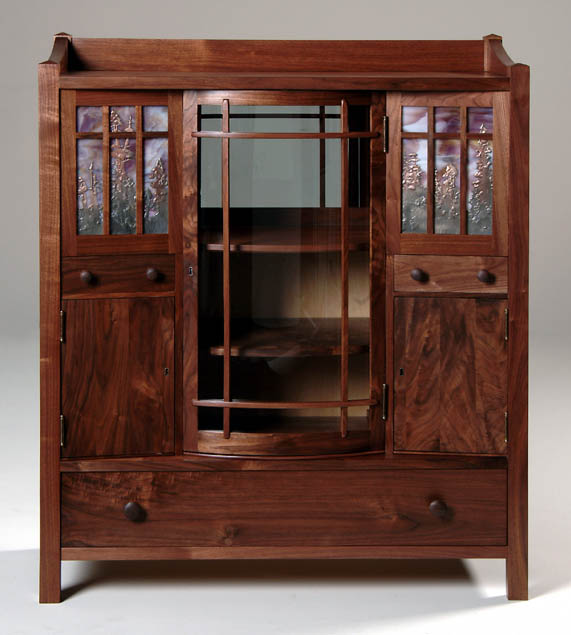
There are exceptions to the rule
The greatest exception to my experience of being paid relatively little for written work, especially in the case of books, came with Kitchen Think, published in late-summer 2020 by Lost Art Press. Because Lost Art Press shares with authors the costs of any given title they publish and splits the profits; because most of the jobs I wanted to use to illustrate the points I would make were already done and paid for, which made writing this book a lot more streamlined that it would have been had I needed to build each example anew; and because this title has sold well, this one book has made me money – not enough money to have paid me to write it, if I broke it down to an hourly shop rate, but real money, far more than I have ever earned for writing — especially for writing a book.
And that has been a gift in light of my recent reality. In 2021 I worked a fraction of my customary time in the shop because I did nine months of chemo and spent untold hours at hospitals, doctors’ offices, and on the phone with insurance companies and medical providers. I still did a reasonable amount of what I call real work (reasonable in view of my diagnosis and physical condition while undergoing chemo), but compared to my former output, it was a drop in the bucket. At the end of the year, thanks to royalties from Kitchen Think, my income was as high as it would likely have been had I been working in the shop at my regular pace, full-time. That has been a blessing as I do my best to stay alive with Stage IV pancreatic cancer, which has no cure and precious few available treatments beyond chemo for those like me who are not eligible for surgery. I’m not being histrionic; too many of those who simply take their oncologist’s diagnosis and treatment recommendations at face value without seeking information and perspectives from others prove their doctors right, faring less well than those who take the initiative and seek second (and third, and fourth) opinions, then put in the time to follow the resulting leads. It’s a slog, but a potentially rewarding one — does it get any more rewarding than the potential for continuing a life you love, in the face of otherwise-certain death? Pursuing those suggestions from friends, as well as doctors, has brought me in touch with several multi-year survivors of Stage IV pancreatic adenocarcinoma, most of whom were told at diagnosis that they would die within six months. My gratitude to Lost Art Press, Fine Woodworking, clients, and others who have been patient with me and invited me to keep working with them over the past year-plus is profound; I know from experience that such understanding and forbearance are not the norm.
Bottom line: I would make more money if I focused solely on woodworking and didn’t write another word for publication. I write because doing so is essential to my well-being. It connects me to diverse people with whom I would otherwise have no contact. It has brought me many opportunities in fields tangential to woodworking that I find rewarding, such as speaking engagements, participation in conferences, videos … and more books and articles. I do it not primarily to bolster my income, but because without writing, the quality of my life would be seriously impoverished.
*Be my guest. It’s clearly a fallacy of irrelevance, but I can see all kinds of pedagogical points that might come from this example.
**Bringing notice to something is the meaning behind “advertisement.” Unfortunately this concept, which in principle is benign, has come to be known as a disingenuous means of swaying opinion. The “ad” means “to” or “toward” in Latin. The “vert-” connotes turning.
The image at the head of this post is from the Library of Congress. Storybook Gardens billboard, Lake Delton, Wisconsin.
—-Nancy Hiller operates NR Hiller Design, Inc. and is the author of several works, including Kitchen Think. Her most recent book is Shop Tails.
More by Nancy Hiller
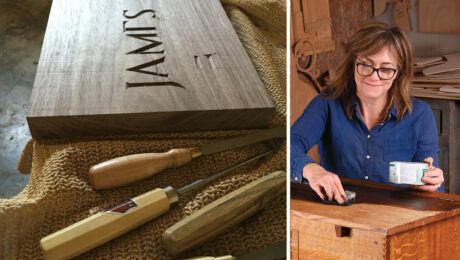 |
Defining success |
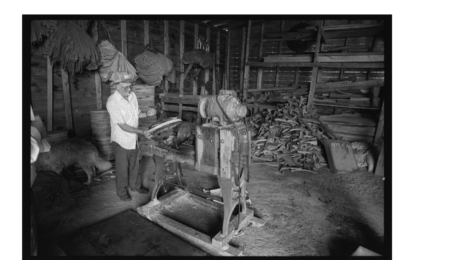 |
There is no level playing field |
 |
Own your schedule |

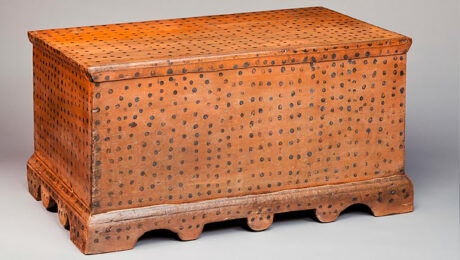
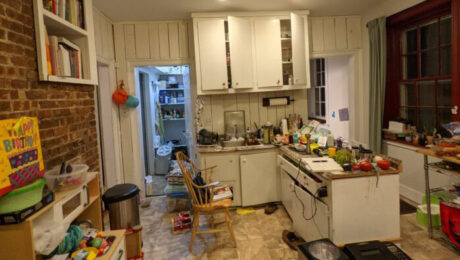
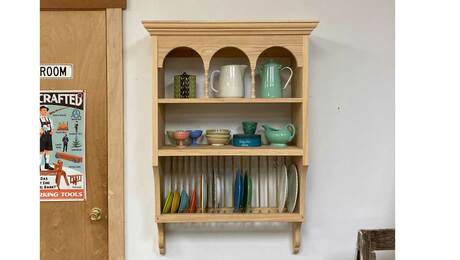
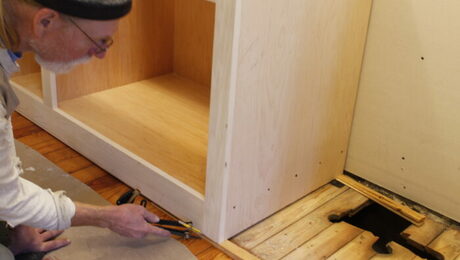














Comments
I am happy to have had the privilege of reading this. Upon reading the first paragraph, I set my coffee cup on the table and said to myself, "Wait a minute, here, buster. Just how many ill-considered assumptions are rattling around in your cranium in their lonely search for reasonable intellectual basis? If there's more than just this one, we might be a while." When the author so deftly defanged, disarmed, and dispatched to the dump the smart-a** comment, I grinned.
Though I've never been so privileged as to see Ms. Hiller's work up-close and personal, so to speak, I've seen and read a fair bit of her work through both on-line channels (such as this one) and the wonderful, tactile world of books. ['Kitchen Think' is prominently displayed in the bookcase near the parts of the kitchen that I have more-or-less acceptably (and modestly) rehabilitated and those that need quite a bit more. 'Making Things Work' is near my favorite arm chair.]
I am pleased to have crossed paths, if no more than temporally, with Ms. Hiller, and to know simply that people like her exist, and do their best to be full, lively, loving human beings. (Read those last five words again: Full, lively, loving human beings.)
Now I'm going to go play with the dogs for a bit before going into the shop and resuming work on the end table I'm making for my wife as a birthday present. I'm loving every minute of it.
Thanks for your appreciative comment. You made me laugh with your "Wait a minute, here, buster. Just how many ill-considered assumptions are rattling around in your cranium in their lonely search for reasonable intellectual basis? If there's more than just this one, we might be a while." When the author so deftly defanged, disarmed, and dispatched to the dump the smart-a** comment, I grinned." Lucky wife, to have an end table in the works for her birthday.
You’re very welcome, of course. As for my lucky wife, let me just say that I got the better deal when we got together.
By the way, our dogs say ‘hi’! [I’m in the middle of “Shop Tails” right now, and very much enjoying it. So much so that I’ve ordered my own copy. (I’m reading a borrowed copy.)]
Great essay, as always. Thank you for it.
This blog makes me happy for a million different reasons.
Wonderful blog post. Thanks!
It is too bad that we live in an age where you need to defend your choices at all. Those of us who know your work, both built and written, and have gained from the many pearls you cast before us, do not need to be convinced. I always enjoy your articles and I always come away a better person for the things you have shared. I hope that you will continue for as long as you can. I do hope that your health holds up and that you can stay with us for a long time to come.
Don't worry; I don't *need* to defend my choices, especially to people who clearly don't know me or my work. I just can't resist doing so. It's a sick compulsion -- in this case, one that I hope will be illuminating to anyone who thinks it's impossible to make a living in this field without supplementing their income by writing for publication. In many ways, there has never been a better time to be a professional woodworker, whether in trim carpentry, cabinetmaking, furniture making, or fabricating household utensils of various kinds, a point I address because the historical perspective on such matters (in this case, we're talking recent decades, not centuries) is important to consider.
Thank You Nancy for this post. You are one of these few people wherein the labor, skill, craft, artistry come through in what you do. You give the world its flavor. You bless the rest of us in it.
Thanks! Glad to be one of your many fans. I got the kitchen book for Christmas! I might've hinted that I wanted it. :)
I hope you find "Kitchen Think" useful. It was so much fun to write.
Thanks for this piece. I recently read Making Things Work and loved it. Kitchen Think is on my shelf awaiting the flight of my youngest to college and the beginning of The Big Kitchen Remodel. I have found all your articles both educational and enjoyable and haven’t found one that wasn’t worth my time, which is a rare thing indeed. Thanks for all you have written and will write.
Log in or create an account to post a comment.
Sign up Log in